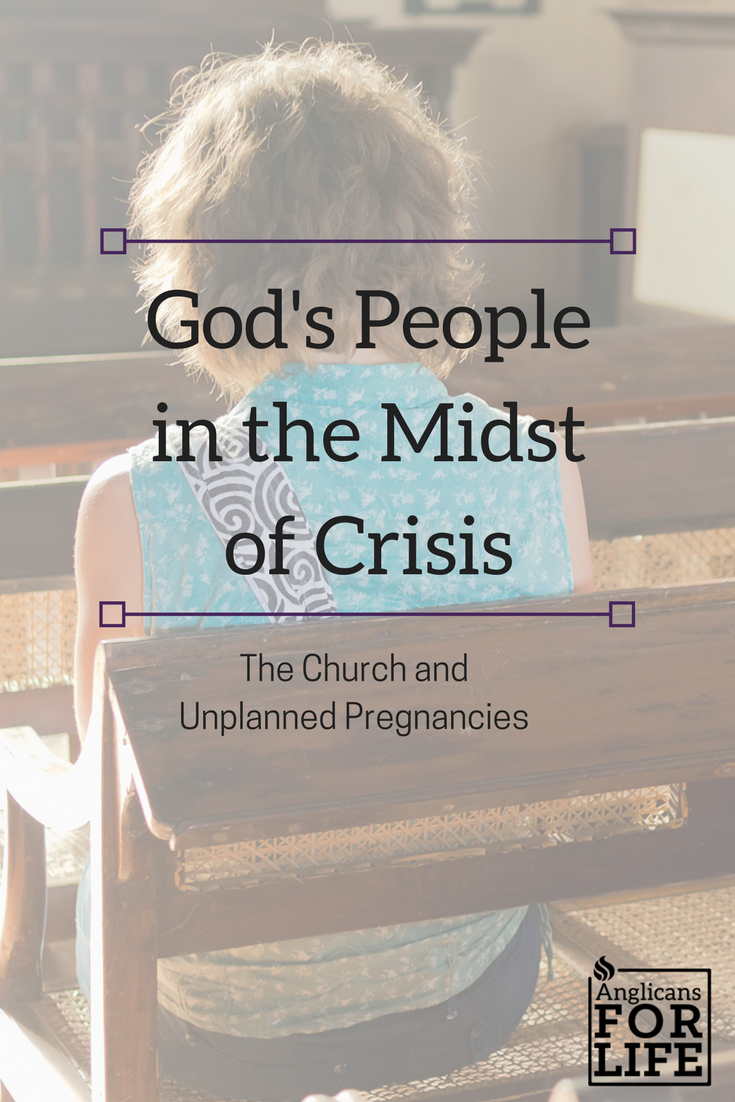Incline your ear, O LORD, and answer me, for I am poor and needy (Psalm 86:1).
Years ago, pregnancy care centers were typically called “crisis pregnancy centers.” I am not sure of all the reasons why most centers dropped the term “crisis,” but I suspect it had something to do with wanting a pregnancy center to be a place where women would know they could find care, a place of peace as they wrestle d though difficult decisions and circumstances. And, while I am sure that such renaming was wise, and perhaps necessary, the term “crisis” remains apt. An unexpected pregnancy is a crisis, or at least it feels that way to many women and men in the midst of one.
d though difficult decisions and circumstances. And, while I am sure that such renaming was wise, and perhaps necessary, the term “crisis” remains apt. An unexpected pregnancy is a crisis, or at least it feels that way to many women and men in the midst of one.
Psalm 86 is a prayer of a man in crisis. Throughout the psalm we hear the pleas of David: “Incline your ear, O LORD, and answer me, for I am poor and needy… preserve my life… save your servant… be gracious to me… listen to my plea for grace… in the day of trouble I call upon you…” Here is a man who, at least at very specific times in his life, lived in crisis. We know many of them—fleeing for his life from King Saul and later from his son Absalom, his adultery with Bathsheba, and his subsequent murder of her husband, to say nothing of the constant pressure of being a king. In other words, life was far from smooth sailing for David.
Crisis is normal for the Christian life. It is normal for life period. Failure, disappointments, the death of loved ones, broken relationships, addictions, bad decisions, insecurities, depression, and health crises are all part of the world in which we live, and therefore a part of our own lives, regardless of who we are or how close to God we may (or may not) be. One way to speak of the difference between the Church and the world is that, while all live in the midst of crisis, the Christian knows where to turn. In fact, not only does the Lord want His people to come to Him in crisis, He requires them to do so: “Call upon me in the day of trouble; I will deliver you, and you shall glorify me” (Psalm 50:15). Delivering His people is what it means for the Lord to be God. The thing so encouraging about David’s life is that he came to God during all kinds of crises, even those of his own making. And the Lord received him, for that is what the Lord does. The name Jesus, after all, means salvation—“you shall call his name Jesus, for he shall save his people from their sins” (Matthew 1:21). Before He is anything else to His people, the Lord is a savior.
Yet there is an impulse among many Christians—although certainly not all—that having come to Christ means that we should now be free from crisis and, in particular, crises of our own making. Often this thought is rooted in pride, not wanting to admit that, even as we have been claimed by Christ, that life is not always smooth and that we still deal with sin. Not only does such an idea rob the Church of peace, but it erects a wall before those in a real crisis, particularly those whose crises are of their own making. But what is the Church but those who know crisis, even crises of our own making, and have found peace, not because we have been good but because we’ve been delivered? Who are learning to trust God in the midst of crisis, even when it may not be readily lifted?
So what does this have to do with abortion? Not every woman in a crisis pregnancy has access to a pregnancy center. But she should have access to a church. Will she come? Does she know that God has loved a messy, tired, and rebellious people—like you and me—in Christ Jesus? Is the fact that Jesus is first a Savior evident not just in the doctrine of the Church but in the lives of her people? Does she believe that the Church also knows crisis? If she does, she may turn to the Church. If she doesn’t, she may turn elsewhere.
Written by the Rev. Dr. W. Ross Blackburn. Rev. Blackburn is the Rector of Christ the King, an Anglican Fellowship in Boone, NC and an Anglicans for Life’s Board Member.
